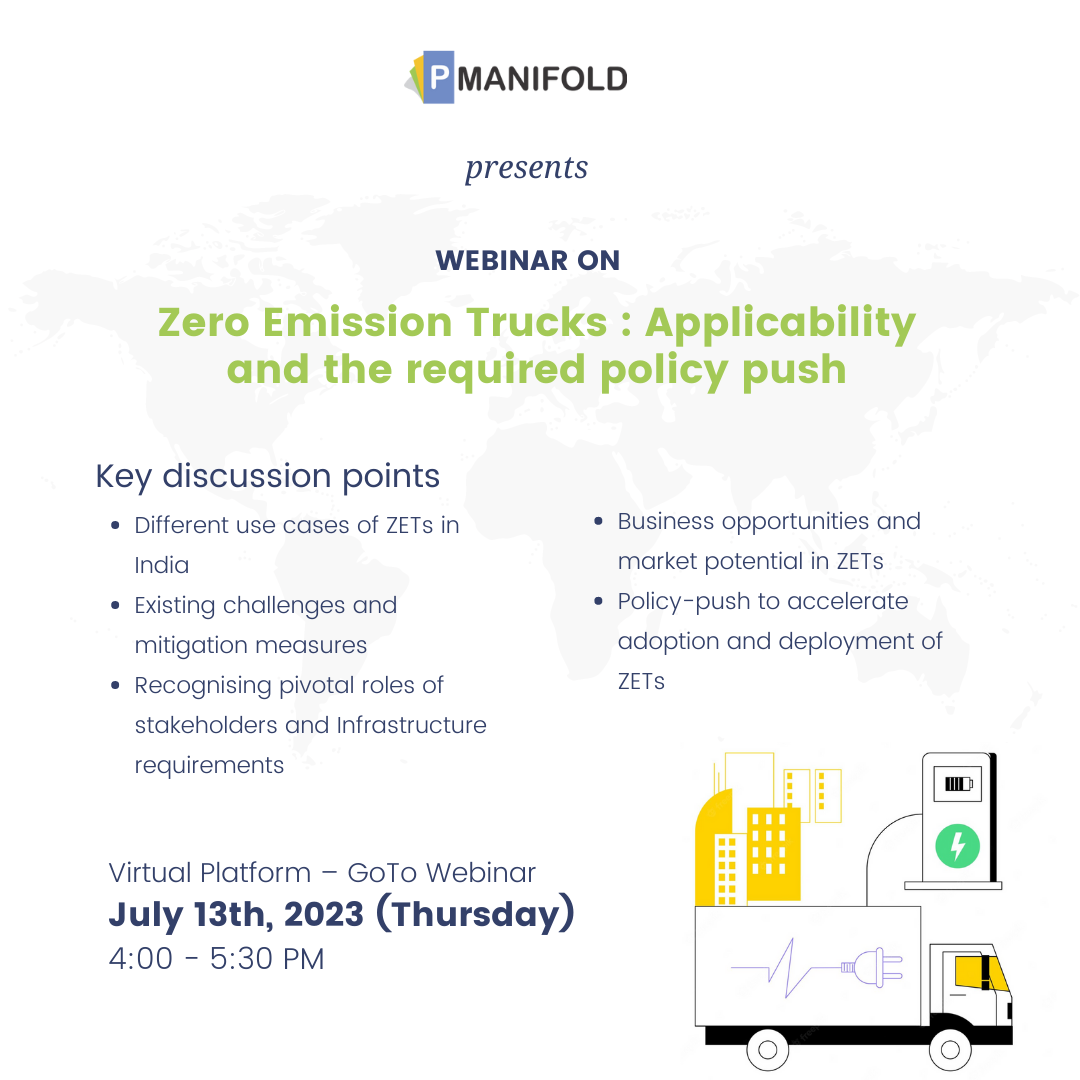
Zero Emission Trucks: Applicability and the required Policy Push
Globally, trucks and buses are responsible for over a third of global on-road fuel and greenhouse gases (GHGs), and more than 70% of pollution that leads to serious health impacts, despite comprising less than 5% of the road fleet today. The emissions are forecasted to double by 2050.
The global e-Truck market is growing due to environmental concerns and technological advancements. Battery e-Trucks are becoming competitive with diesel trucks in terms of cost, particularly in urban and regional operations. Countries like Norway, the Netherlands, and China have witnessed significant e-Truck adoption.
India, with its net-zero emissions pledge, sees potential in introducing the Zero Emission Trucks (ZETs) in the EV revolution as it aims to reduce the country’s overall carbon footprint and meet its Sustainable Development Goals (SDGs) by 2030. Heavy-duty vehicles like trucks and buses, tend to have higher GHG emissions compared to passenger vehicles. In India, only 2% trucks contribute to a whooping 47% of total emissions despite their low relative inventory on the roads thus making them a suitable target for electrification and drastically cutting down emissions.
A recent technology roadmap released by GOI indicates the government’s clear intention to electrify trucks indicating a revolutionary shift towards a sustainable transportation system. However high import taxes, discrepancies in demand and supply, complex regulations, lack of charging infrastructure, payload trade-off are some of the barriers for the rapid commercial adoption of e-Trucks in regional and long-haul operations. By embracing technology and finding suitable solutions, India aims to reduce GHG emissions from its trucking industry.
This webinar will focus on:
- Different use cases of ZETs in India and
- Existing challenges for the adoption of ZETs in India and mitigation measures
- Policy-push to accelerate adoption and deployment of ZETs
- Recognising pivotal roles of stakeholders in driving the transition to ZETs
- Infrastructure requirements for Zero Emission Trucking (ZET)
- Innovative financing models and incentives


